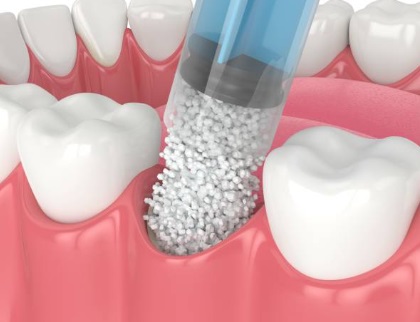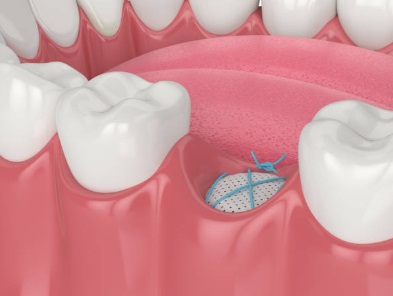
Show the clinics offering Bone graft
What is bone grafting?
 There are many reasons why a bone graft may be needed. Your bones may have suffered trauma from a car accident, an infection from surgery, or even a birth defect. While it may sound like a daunting prospect, bone grafting is a fairly common and safe procedure these days. Therefore, this article provides the following information: What is bone grafting? What does grafting mean? What can you expect from a bone graft? What types of bone grafts are there? What is a dental bone graft? How much does a dental bone graft cost in the UK? We will discuss the general implications of grafting, mainly focusing on bone grafting for dental purposes. We hope that after reading this article, you will have all the information you need to discuss this option with your doctor and feel confident about the steps ahead.
There are many reasons why a bone graft may be needed. Your bones may have suffered trauma from a car accident, an infection from surgery, or even a birth defect. While it may sound like a daunting prospect, bone grafting is a fairly common and safe procedure these days. Therefore, this article provides the following information: What is bone grafting? What does grafting mean? What can you expect from a bone graft? What types of bone grafts are there? What is a dental bone graft? How much does a dental bone graft cost in the UK? We will discuss the general implications of grafting, mainly focusing on bone grafting for dental purposes. We hope that after reading this article, you will have all the information you need to discuss this option with your doctor and feel confident about the steps ahead.
Bone grafting is used to preserve the periodontal tissue cover. There are many different types of materials that we use.
- Bone materials
- Barrier membranes
- Bone substitute materials
The barrier membrane creates a space where unwanted cells cannot enter. This allows for organizational restructuring. Barrier membranes are divided into absorbent and non-absorbent. Non-absorbable ones should be removed after 4-6 weeks. We divide bone material into viable and non-viable cellular material (autologous/allogeneic/xenogenic material). Bone replacement materials can be natural (algae-derived hydroxyapatite) or synthetic (synthetic hydroxyapatite, HTR polymer hard tissue “synthetic bone”, calcium phosphate). Transplantation is the process of transplanting healthy tissue, hard or soft, to repair damaged or diseased tissue.
Bone grafting, therefore, is a surgical procedure in which healthy bone is harvested from one part of the body and used to repair damaged bone in another part of the body. Almost any bone in the body can be repaired this way. Healthy bones are usually taken from ribs, legs, and hips. Bone grafts can also be made from cadaver bone, or from synthetic materials, rather than body bone. Bone grafts are used to repair a variety of bones in the body, but one of the more common uses is dental bone grafts or jawbone grafts. Teeth or tooth bone grafts may be more appropriately called dental implant bone grafts because many people require dental bone grafts before receiving dental implants. This is because you need a strong jawbone to place dental implants. Also, if the bone is damaged or degraded due to missing teeth, bone grafting is needed in the mouth to create enough bone to hold the implants in place. More on why you need bone grafting for your teeth below.
Materials for bone graft
What are bone substitute materials in general? There are three types of materials used for bone grafting. Materials for bone substitutes are:
- Autolog: This is an organic tissue (in this case bone) taken from the recipient’s own body. This is the material used in the aforementioned autograft.
- Allograft: Above we mentioned allograft as a type of bone graft. These bone grafts are usually made from demineralized, freeze-dried bone.
- Synthetic Bone Substitute Materials: Dental treatments requiring bone augmentation can also be performed with synthetic materials. This is where alloplasts come in, often made from artificial bone substitutes such as glass or plastic containing hydroxyapatite and tricalcium phosphate.
Tooth bone grafting procedure
Bone grafting can be done intraorally (from the mouth) or extraorally (from another part of the body). If too much tissue is missing, the procedure may require an oral explant.
Let’s talk a little bit about the procedure. The general procedure for oral explant bone grafting is as follows:
- You will be anesthetized so you won’t feel any pain

- A doctor or nurse will be responsible for monitoring your vital signs
- clean the affected area
- Your surgeon will make an incision in the skin and muscle around the bone that will receive the graft.
- At this point, for autografts, the surgeon makes another incision to harvest the bone graft. A surgeon inserts a bone graft between two pieces of her bone that need repair or are growing together.
- Screws are placed to secure the graft if necessary
- The skin and muscle around the grafted bone are surgically closed, as is the area of the bone that was removed.
When receiving dental implants with bone graft surgery, it may not be completed until the restoration of the dental bone graft surgery is fully completed, and this process can take months to a year. Bone grafting procedures for dental care are very common and may sound scary right now, but if you can have implants to replace missing teeth, it will be worth it in the long run.
Healing stage of bone graft
 Although the bone graft healing process varies from person to person and includes the healing time of dental bone grafts, the following should be considered as part of a typical bone graft healing timeline:
Although the bone graft healing process varies from person to person and includes the healing time of dental bone grafts, the following should be considered as part of a typical bone graft healing timeline:
- Pain: Some pain and discomfort after oral surgical bone graft surgery is normal. Your dentist can tell you how to manage your pain. Post-surgery pain should improve little by little each day. If it does not improve, you should contact your dentist.
- Bleeding: A small amount of bleeding is expected after surgery. Get plenty of rest after surgery and be careful not to aggravate the bleeding. Call your dentist if the bleeding does not stop.
- Swelling: Bone grafting for dental implant healing is accompanied by swelling around the mouth, cheeks and even eyes. However, it should get better after that. If not, consult your doctor.
The healing period for bone grafting varies from person to person, but generally it takes several months to a year. Appropriate care should be taken during this period to facilitate recovery.
The cost of bone graft
Dental bone graft costs in the UK range from £200 to £4,000 and are unlikely to be covered by the NHS. If bone grafting is required for dental implants, the cost will be even higher, so you should consider getting your dental treatment done abroad. The cost of bone grafting is even higher when strong bone is needed to receive a dental implant. This is why you should consider getting bone grafts and dental implants abroad in places like Hungary and Poland. Bone Grafts in Poland For example, the average price for bone grafts is just over £200 and implants are much cheaper than in the UK. Check the table below to see the prices of the cheapest implants in Europe.

Comparing the price to the average cost of £2,250 for a dental implant in the UK, this is a significant savings! Just because treatment abroad is cheaper doesn’t mean treatment is bad. Since the cost of living is cheaper in other countries, the cost of treatment is also cheaper. Additionally, overseas clinics want British people to visit for dental care and rely on good reviews to spread word of mouth. Learn more about implants.



